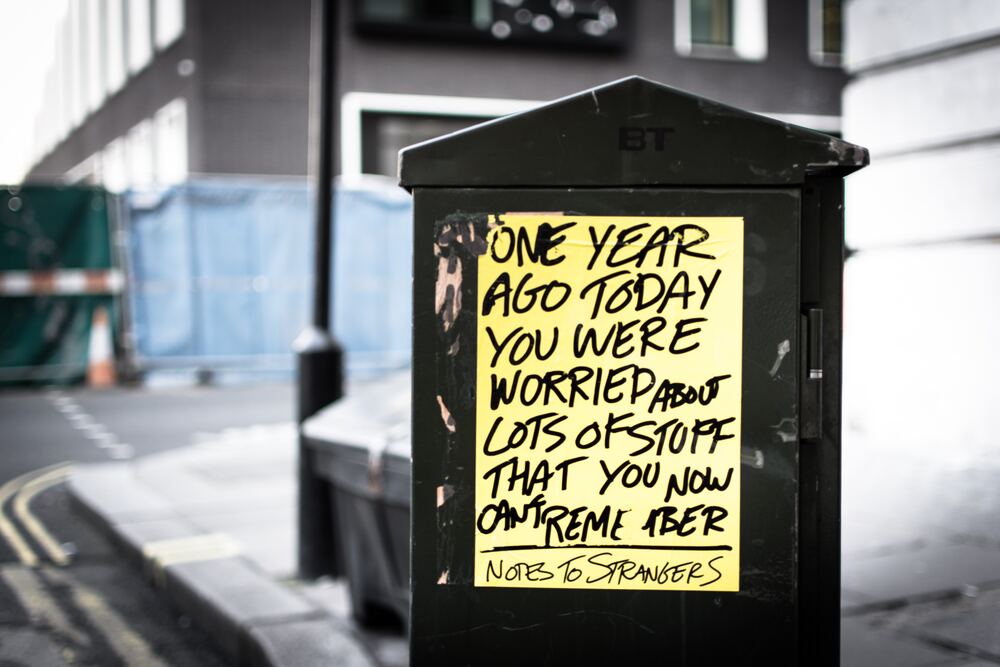Are you in your 20s and do you feel anxious or have you had a panic attack?
In this article, we are going to find out why panic attacks often start in your 20s, and what you can do to decrease anxiety.
Onset of anxiety and panic disorder
Research shows that the prevalence for anxiety disorders in children and adolescents is approximately 6-10%. For panic disorder, a type of anxiety disorder, this is less than 1%. (The Handbook of Child and Adolescent Clinical Psychology by Alan Carr). A professional can diagnosis this disorder based on certain criteria listed in the DSM-V (Diagnostic and Statistical Manual of Mental Disorders) or the ICD-11 (International Classification of Diseases). For example, the DSM states that the duration of the symptoms must have been ongoing for at least six months. Not everyone who experiences a panic attack develops panic disorder.
Anxiety disorders, including panic disorders, often run in families. If one of your first-degree relatives (for example a parent or sibling) has been diagnosed with panic disorder, you have a 40% risk of developing it too. (source)
Panic disorder may start during childhood, but it usually begins in adulthood, after age 20. (source)

Anxiety in our twenties
Early adulthood is a period full of big changes. Many things we experience in our twenties, we experience for the first time. Major milestones like living on our own for the first time, starting our first job, starting our first serious relationship, starting university, shifting social groups, and learning about new cultures and new perspectives on life, to name a few.
This alone can cause a lot of anxiety, but there are other factors that play a role:
- You may start drinking alcohol and taking drugs. You might have an irregular sleep schedule and/or a diet that lacks enough fruit and vegetables.
- You might compare your own life to others on social media. We often look at successes that are unrealistic for most people. We can start to feel that we’re behind in life.
- There are many things that you can do with your life. The world seems smaller to the current generation than to the previous generation. You don’t necessarily have to follow in your parents’ footsteps or start a 9 to 5 job right after graduating. This creates a choice overload that can lead to anxiety. The more choices you have, the less able you are to make one.
- A paradox exists: you should enjoy your 20s, try new things, and step out of your comfort zone because “It is the best time of your life”, but at the same time, you must have it all figured out before your 30s. You might feel internal pressure to keep a good balance, but also external pressure, for example from family, to make the right decisions.
- Ruminating about the future might give you a sense of control, but it’s a false sense. You want to anticipate the future, but because this is not possible, it can make you feel anxious thinking about the future.
Are your 20s the defining decade?
A common belief is that the decisions we make in our 20s matter for the rest of our lives. There is a truth in this; clinical psychologist Meg Jay came to this conclusion after interviewing a bunch of people in their 30s and 40s (see ‘The Defining Decade’ by Meg Jay). This creates the feeling that you need to make all the right choices now.
But even if the decisions you make in your 20s matter, it doesn’t mean that the rest of your life is set in stone. You can change your life at any point. You can always start a new degree, switch careers, or move abroad. The brain continues to adapt to new experiences even as we age. Neuroplasticity – the ability of neural networks to change through growth and reorganisation – doesn’t peak at around the age of 25 and then stops, as was previously believed.
Why are some people more anxious than others?
Just like everyone has an individual pain threshold, we also have an individual anxiety threshold. Some people are more prone to feeling anxious than others because their anxiety threshold is lower. This can be caused by lifestyle factors such as diet or (a lack of) exercise, specific circumstances, or specific traits.
Considering everything that is going on in your twenties, it is no surprise that you might feel anxious and lost at times. If there are lots of stressors in your life and not enough relief from this stress, the stress starts to build up in your body. At some point, the nervous system can get so overstimulated that it can result in a panic attack.
How to deal with anxiety in your twenties
Now that we’ve looked at why it makes sense that the first panic attack often arises in early adulthood, let’s look at some practical things that you can do in your 20s (or at any age) to bring that anxiety down:
Mentally
- Observe your thoughts. Read and then repeat: I am not the only one who hasn’t figured it all out. No one has really figured it out, and that is OK. Everyone is on their own timeline. Whatever is going to happen, I will be able to handle it. I can’t anticipate the future, so I can just let it go. I focus on one moment or one good day at a time. I’m going to look for the magical moments in every day. I don’t always need to be busy.
- Apply some form of mindfulness in your days, for example, through journaling, breathing exercises, yoga, or meditation. If relaxing makes you feel anxious, read this blog post first.
- Stop watching the news and remove social media from your phone. (Alternatively, keep the apps, but go through the people you follow. Who actually gives you a good feeling after watching their content? Schedule a 15-minute time period in your day in which you can scroll through social media or watch the news. This is to keep you from being bombarded by all the stimuli all day long.)
- Get rid of bad relationships.
- Figure out what your core values are. (click here for the exercise)
- Whenever you want to ‘get out of your head’, it can be nice to play your favourite song, turn up the volume and sing and dance along with the music.
Physically
- Getting good sleep: create a regular sleep schedule.
- Exercise, walks in nature.
- Eating a healthy diet with lots of fruit and vegetables.
- Cutting out coffee (this is a stimulant and you don’t want the extra adrenaline).
- Quit alcohol and drugs.
Want more inspiration from books? Here’s a list of must-reads. Note: they’re not specifically about anxiety.

Conclusion
Panic attacks usually start in early adulthood – in your 20s. This is a period full of big changes and often puts internal and external pressure on your shoulders. When signals of stress have been neglected for a prolonged period of time, and the anxiety threshold is low, there is a risk of experiencing a panic attack.
When you experience your first panic attack, it’s a very clear signal of your body to tell you that you need to change something in your lifestyle. You can seek professional help to prevent developing a panic disorder. You can also start with a self-help program like this one. This might be good option if therapists in your area have long waiting lists.